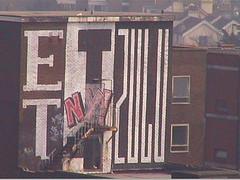 The main arguments that had guided the Republic in developing of industrialization, had been consolidated by the essential landmark of the politics of defense of the coffee, tie because as if it knows had been materialize by means of credit injection. Another preponderant factor was the attempt in recouping the Brazilian credit by means of the o has controlled economic, that it was the edges of the budgetary deficit devastated by the fall of the importations. For I fall the Prado Jr (1970, P. 261) and Nelson Wemeck Sodr (1967, P. 311), the economic crisis of 1929 and 1930, had preponderant factor in alavanque of the industrial expansion, this if must because with the reduction of the importation and exportation government it saw? if come back to the internal sector. With effect the industrial growth in the First Republic, emerges of adverse shocks or induction for the exportations, showing? if incapable of at this moment of the demand. However, it is necessary to clarify, that with the difficulty in the importations the domestic market was forced use of the internal merchandises making possible despite mitigated the economic growth.
The main arguments that had guided the Republic in developing of industrialization, had been consolidated by the essential landmark of the politics of defense of the coffee, tie because as if it knows had been materialize by means of credit injection. Another preponderant factor was the attempt in recouping the Brazilian credit by means of the o has controlled economic, that it was the edges of the budgetary deficit devastated by the fall of the importations. For I fall the Prado Jr (1970, P. 261) and Nelson Wemeck Sodr (1967, P. 311), the economic crisis of 1929 and 1930, had preponderant factor in alavanque of the industrial expansion, this if must because with the reduction of the importation and exportation government it saw? if come back to the internal sector. With effect the industrial growth in the First Republic, emerges of adverse shocks or induction for the exportations, showing? if incapable of at this moment of the demand. However, it is necessary to clarify, that with the difficulty in the importations the domestic market was forced use of the internal merchandises making possible despite mitigated the economic growth.
With this some authors demonstrate that the depreciation of the national currency had corresponded the phases of growth of the production, what without a doubt they impose an intensification of the capitalizaton of financial resources, causing for consequence a positive effect in the domestic market. The diversification of the job of the capital seems us as primordial point of the piramidal formation, standing out the chance of suplemental jobs as railroads, commerce, banks, intensifying for symbiosis the division of the work and improving the mercantile ones, materialize a landmark enters the rupture of the relations with the world-wide market. Destarte, with the substitution of importation was gradually instituted a disequilibrium in the external economy, reducing the collection of the main source would tax (the customs tariffs), what it was compensated by the one for the consumption tax, that is the income is not more only spends with importation, but also with substance industrialization proper cousin (internal). Ahead of this I contest is possible to glimpse the existence of a relation (direct or inverse) between coffee and industry. I say this inasmuch as, the crisis coffee economy presents positive and negative antagonistic consequences on industrialization. However they impose the exchange decline, long ago protects national industrialization. However it is necessary to clarify that the possibility of investment were restricted for the high value of the imported products, what in remote if the diligent ones of the coffee they are dismissed in the crisis, scrumble the market for the products of the industry, the contrary sense, the agricultural exodus, extend it oportunizando the vacant concession in the industrial sector Of this making understand the expansion of the productive structure in the Brazilian industry were a gradual process, is not about a deep rupture with the past, and yes unquestionably a moment of important transformations, as fruit of a crisis external, ally to the process of industrial growth.